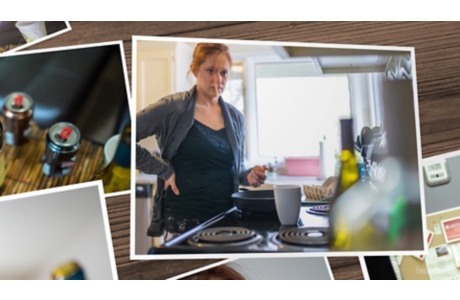alcohol and your health
overview
how can you lower your risk from drinking?
if you choose to drink alcohol, the key is to keep your drinking at the lowest possible levels. it's important to remember that drinking alcohol is not risk-free.
many people enjoy drinking alcohol, and most people usually do it safely. but it's okay to choose not to drink.
how can you reduce your risk of harm from alcohol
research shows that drinking any amount of alcohol can have risks.
if you drink, try to drink less. canadian health experts say your risk of harm from alcohol is:footnote 1
- low if you have 2 standard drinks or less per week.
- moderate if you have between 3 and 6 drinks per week.
- high if you have 7 or more drinks per week.
having more than 2 drinks in one sitting increases your risk of harm to yourself and others.
keep in mind that things like age, sex, weight, and health history can cause alcohol to affect people differently.
if you choose to drink, here are some things you can do to reduce your risk of getting sick or injured:
- have a meal or a snack with your drink. don't drink on an empty stomach.
- drink slowly. don't have more than 2 standard drinks in one sitting.
- have a glass of water or non-alcoholic, caffeine-free beverage (such as a soft drink or fruit juice) between drinks.
- avoid risky situations and activities. don't drink and drive, and don't get in a car with a driver who has been drinking.
- don't take over-the-counter or prescription medicines that interact with alcohol.
- limit how much you drink.
what are the health risks of drinking alcohol?
when you drink alcohol, you may be putting your health and safety at risk. your risk of harm increases with each drink that you have.
drinking alcohol may:
- harm your liver, pancreas, nervous system, heart, and brain.
- cause high blood pressure, depression, stomach problems, or sexual problems.
- contribute to the development of some cancers, such as cancers of the mouth, throat, esophagus, liver, colon, and breast.
- cause memory loss and affect your ability to think, learn, and reason.
- cause harm to your developing baby (fetus) if you drink during pregnancy.
- lead to problems at work, school, or home.
- increase the risk of car crashes and violent behaviour.
- cause you to develop an alcohol use problem.
if you think you're drinking too much, you might want to cut back.
when is it okay for young people to start drinking?
young people should wait at as long as possible to drink alcohol. follow the laws for the legal drinking age where you live. drinking at a younger age can affect a young person's general health, physical growth, emotional development, ability to make good decisions, and schoolwork.
parents can play a key part in teaching their children how to drink safely and responsibly.
- talk about the risks and dangers of drinking alcohol. discuss your family rules about alcohol use. make it clear if you don't want your children to drink.
- make it clear that they should never drink and drive and that they should never get in a car with a driver who has been drinking. make a plan with your children to get home safely. for example, give them money to pay for a taxi or offer to pick them up if they need a safe ride home.
- be a good role model. your drinking behaviour is an important influence on your children.
who should not drink alcohol at all?
although most people can have a drink now and then, some people should not drink at all.
don't drink alcohol if:
- you're pregnant or trying to get pregnant. alcohol can harm the developing baby (fetus). alcohol can pass into the baby's blood. it can damage and affect the growth of the baby's cells. experts don't know if any amount of alcohol is safe to drink during pregnancy.
- you breastfeed your child. if you choose to drink, breastfeed just before you drink alcohol. and wait to breastfeed at least 2 hours after you have a drink to reduce the amount of alcohol the baby may get in the milk.
- you're taking over-the-counter or prescription medicines that interact with alcohol.
- you have health problems made worse by drinking, such as liver problems, heart failure, uncontrolled high blood pressure, or certain blood disorders.
- you have a mental health problem and are using alcohol to try to make yourself feel better.
- you have problems controlling how much you drink, or you had alcohol problems in the past.
- you're at work.
- you plan to drive or operate tools or machinery.
- you plan to play sports or take part in physical activities.
- you're taking care of someone or supervising others.
- you need to make important decisions.
talk to your doctor about whether drinking alcohol is a good choice for you. and if it is, ask how much is okay.
credits
current as of: november 15, 2023
author: healthwise staff
clinical review board
all healthwise education is reviewed by a team that includes physicians, nurses, advanced practitioners, registered dieticians, and other healthcare professionals.
current as of: november 15, 2023
author: healthwise staff
clinical review board
all healthwise education is reviewed by a team that includes physicians, nurses, advanced practitioners, registered dieticians, and other healthcare professionals.
paradis c, et al. (2023). canada's guidance on alcohol and health: final report. canadian centre on substance use and addiction. https://ccsa.ca/sites/default/files/2023-01/ccsa_canadas_guidance_on_alcohol_and_health_final_report_en.pdf. accessed february 15, 2023.



